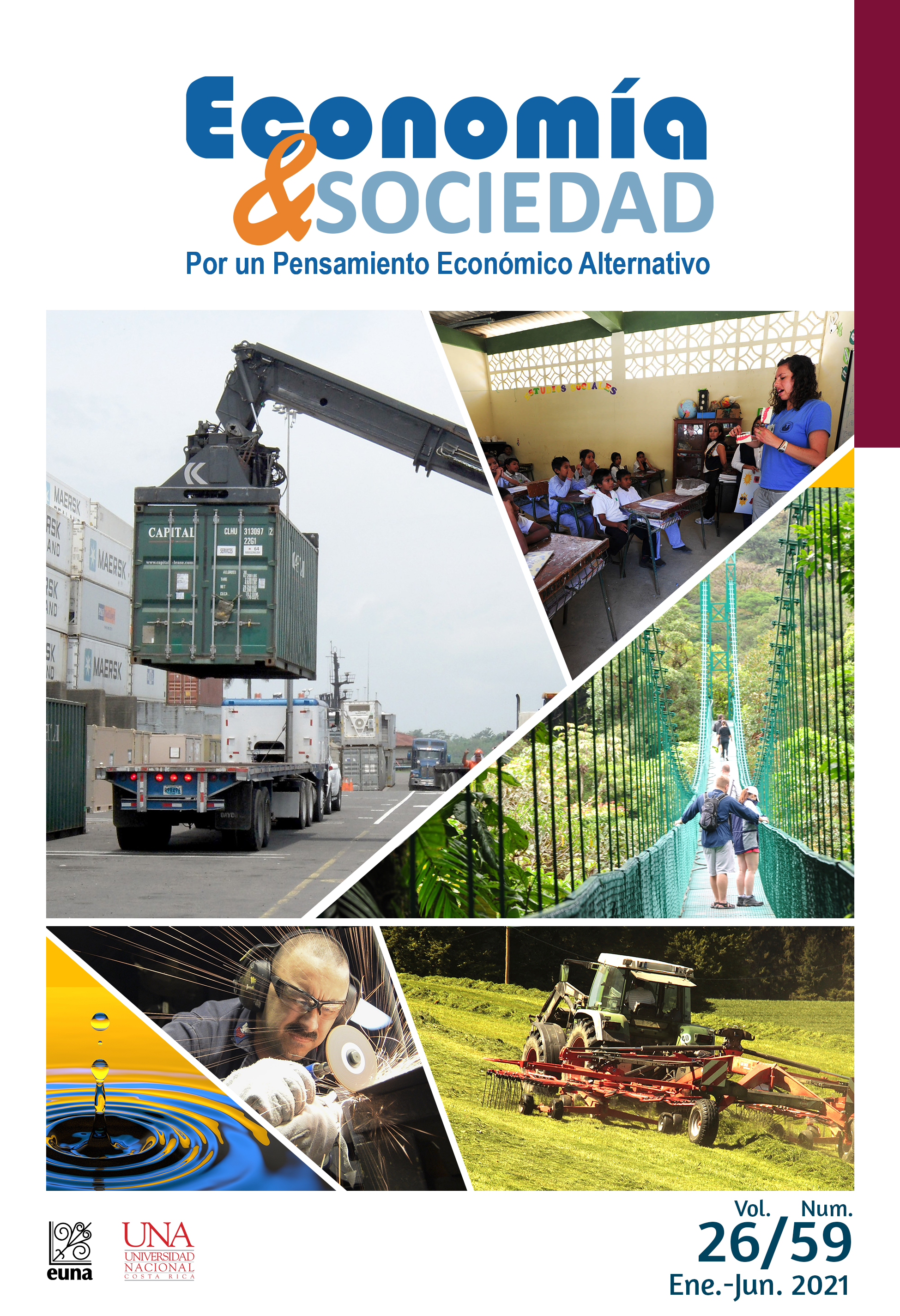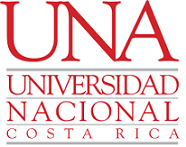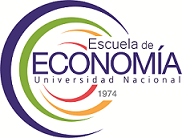Implications of the precautionary and preventive principles for the right to a healthy environment in Latin America
DOI:
https://doi.org/10.15359/eys.26-59.2Keywords:
Regulation, Risks, Mining, FrackingAbstract
This work aims to analyze the implications of the precautionary and prevention principles for the environmental regulation of mining and fracking in Latin America to guarantee access to a healthy environment. The methodology used consisted of a documentary review of different sources on said activities and their consequences, as well as an analysis of the legislative part on the principles of precaution and prevention. The results indicate that the way in which these regulatory tools have been applied has no long-term effects for the prevention of other risks. In conclusion, it is estimated that institutional weakness and dependence on these activities in the region is what causes the lack of comprehensive policies that guarantee socio-environmental well-being in the long term.
References
Aidun, H. y Giunta, T. (2019). Prohibiciones y moratorias al fracking: legislación comparada. AIDA. https://aida-americas.org/sites/default/files/publication/AIDA%20Informe_%20Prohibiciones%20y%20moratorias%20al%20fracking.pdf
Andaluz Westreicher, C. (2006). Manual de Derecho Ambiental. Proterra. https://biblioteca.semarnat.gob.mx/janium/Documentos/Ciga/Libros2013/CD002544.pdf
Arroyo Cisneros, E. A. (2012). El derecho fundamental al medio ambiente. Porrúa.
Azamar Alonso, A. (2018). Minería en América Latina y México: problemas y consecuencias. Universidad Autónoma Metropolitana. https://www.researchgate.net/publication/331273065_Mineria_en_America_Latina_y_Mexico_problemas_y_consecuencias
Azamar Alonso, A. y Olivera Villa, B. A. (2021). Extractivismo y desarrollo dos caras de la misma moneda: amenaza para las mujeres en América Latina. En prensa.
Cafferatta, N. (2004). Introducción al derecho ambiental. Buenos Aires: Secretaría de Medio Ambiente y Recursos Naturales. https://cebem.org/cmsfiles/publicaciones/Introduccion_al_Derecho_Ambiental,_Caferatta.pdf
Campanini, O., Gandarillas, M. y Gudynas, E. (2019). Derechos y violencias en los extractivismos. Extrahecciones en Bolivia y Latinoamérica. CEDIB, ODDNN, CLAES.
Comisión Mundial de Ética del Conocimiento Científico y la Tecnología (COMEST), (2005). Informe del Grupo de Expertos sobre el principio precautorio. COMEST. https://bit.ly/3nmDgJu
Douglas, M. (1987). Les études de perception du risque : un état de l'art. En Jean-Louis Fabiani y Jacques Thies (Eds.), La societe vulnerable. évaluer et maîtriser les risques (pp. 46-60). Rue d'Ulm.
Douglas, M. (1996). La aceptabilidad del riesgo según las ciencias sociales. Paidós. https://bit.ly/3lzjzh3
Farràs J., Bosch, J. L. y Torrente D. (2001). "La seguridad como construcción social". Ponencia presentada en el VII congreso Español de Sociología. http://www.jmcprl.net/publicaciones/f04/files/3%20SEGURIDAD%20GASOLINERAS.PDF
Giddens, A. (2001). Un mundo desbocado. Los efectos de la globalización en nuestras vidas. Taurus.
Kiss A. y Shelton, D. (2007). Guide to International Environmental Law. Martinus Nijhoff Publishers. https://papers.ssrn.com/sol3/papers.cfm?abstract_id=1012092
Lefeber, R. (1996). Transboundary Environmental Interference and the Origin of State Responsibility. Graham y Trotman. https://brill.com/view/title/10318
Organización de las Naciones Unidas (ONU), (1992). Declaración de Río sobre el Medio Ambiente y el Desarrollo. ONU.
https://www.un.org/spanish/esa/sustdev/agenda21/riodeclaration.htm
Pérez Castellón, A., Puentes Riaño, A., Rodríguez, H. y Herrera Santoyo, H. (2016). Principio de Precaución: Herramienta jurídica ante los impactos del Fracking. Fundación Heinrich Böll – Aida. https://mx.boell.org/sites/default/files/publikation_aida_boell_final_20160314.pdf
Pozzi, S., López Tarabochia, M. y Gálvez, A. A. (13 de diciembre 2019). Qué países dicen sí y qué países dicen no al fracking en América Latina. El Salto. elsaltodiario.com/fracking/fracking-en-america-latina-que-paises-dicen-si-que-paises-dicen-no-y-por-que
Romero Muñoz, A. (2017). El principio de precaución en México. Estudio de caso: Emergencia ecológica responsabilidad de la minera Buena Vista del Cobre S.A. de C.V. (Tesis de Maestría). Benemérita Universidad Autónoma de Puebla. https://repositorioinstitucional.buap.mx/handle/20.500.12371/485
Sands P. (2018). Principles of International Environmental Law. Cambridge: Cambridge University Press. https://bit.ly/32N1x3C
Svampa, M. (2019). Las fronteras del neoextractivismo en América Latina. Conflictos socioambientales, giro ecoterritorial y nuevas dependencias. CALAS, Editorial Unive RS Itaria, UCR, FLACSO, UNSAM. http://calas.lat/sites/default/files/svampa_neoextractivismo.pdf
Trouwborst, A. (2007). The Precautionary Principle in General International Law: Combating the Babylonian Confusion. Review of Eruopean Community and Internation Environmental Law, (16), 185-191. https://onlinelibrary.wiley.com/doi/abs/10.1111/j.1467-9388.2007.00553.x
Zaremberg, G. y Guarneros Meza, V. (2019). Conversing with Goliath: Participation, mobilisation and repression around neoextractionist and environmental conflicts. British Academy, FLACSO México y De Montfort University. https://conversingwithgoli.wixsite.com/misitio/datos-y-mapas
Zinn, J. (2008). Social theories of risk and uncertainty. An introduction. Massachusetts: Wiley-Blackwell. https://bit.ly/38MPwPI
Published
How to Cite
Issue
Section
License
This publication is subject to the Creative Commons License; therefore, its attributions and restrictions must be respected.
Authors publishing in this Journal accept the following conditions:
- Authors retain copyright ownership and give the Journal first publication right of the paper, which is registered with the Creative Commons Attribution-NonCommercial-ShareAlike 4.0 International License. This license allows third parties to use the published work provided it is sourced as firstly published in this Journal.
- Authors may enter into other independent and additional contractual agreements for the non-exclusive distribution of the article published in this Journal (e.g., to be included in an institutional repository or published in a book) provided it is clearly stated that the work was published in this Journal for the first time.
- Authors are allowed and recommended to publish their work on the Internet (for example, on institutional or personal pages) before and during the review and publication process, as it can lead to productive exchanges and a greater and faster dissemination of work published.

The Economía & Sociedad Journal, published by Universidad Nacional, is licensed under a Creative Commons Reconocimiento-NoComercial-CompartirIgual 4.0 Internacional License. Based on http://www.revistas.una.ac.cr/index.php/economia.








